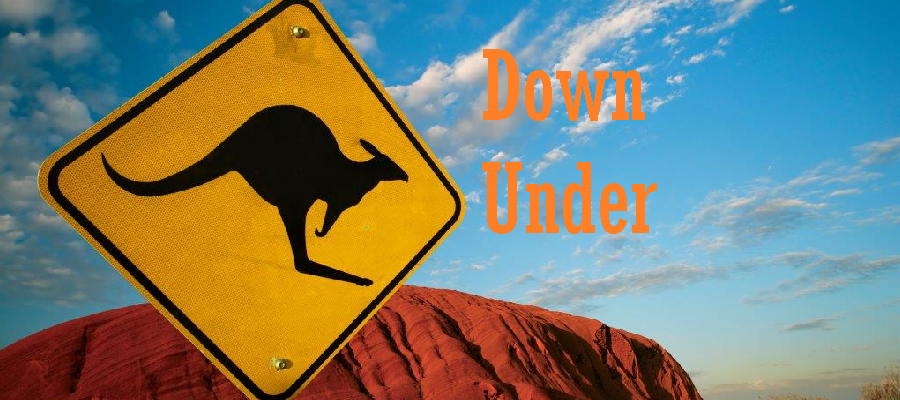The Oxford Dictionary website defines a nickname (or ‘nick’, as it often appears these days, especially on the Internet) as “A familiar or humorous name given to a person or thing instead of or as well as the real name.”
‘Things’ can include countries. During the time of the British Empire, India was known as ‘the Jewel in the Crown.’
Australia is sometimes called ‘Down Under’ (look at the map!) or ‘Oz’ or ‘Aussie’ and New Zealand ‘Godzone,’ short for ‘God’s Own Country.’ Japan is ‘the Land of the Rising Sun’ and Ireland, historically a country of emigration, ‘the Auld Sod.’ (A sod is a lump of earth.) Cities, too, may have nicknames.
New York is ‘the Big Apple,’ Chicago ‘the Windy City,’ and Detroit ‘the Motor City.’ On this side of the Atlantic (also known as ‘the old herring pond’) you can find ‘the Smoke’ (London – so called because of the smog it used to have much of the time), ‘Auld Reekie’ (Edinburgh – again because of smog), or ‘Brum’ (Birmingham).
There are lots of nicknames for nationalities, but unfortunately many of them are insulting1 and so they have no place in this educational article.
Inoffensive ones include ‘Aussies,’ ‘Kiwis,’ ‘Canucks,’ and ‘Saffers’ (people from Australia, New Zealand, Canada, and South Africa), and an interesting one is a common US term for Brits, ‘Limeys,’ which has its roots in the habit British ships used to have of giving sailors lime juice to drink, which prevented scurvy2.
Another nickname with maritime3 origins is ‘Scousers,’ people from Liverpool, formerly an important port. Sailors on Liverpool ships ate a dish called Lobscouse, which was common on ships from many Northern European countries. The origin of ‘Geordies,’ who come from the area around Newcastle, is not so clear – you can find several theories on the Internet – but it’s easy to guess where ‘Brummies’ are from – if you’re unsure, the paragraph about cities will help you.
Some professions have nicknames – ‘sparks’ for an electrician, a ‘sawbones’ for a surgeon – and in Britain some family names have a traditional nickname attached to them, such as ‘Spud’ Murphy, ‘Dusty’ Miller, or ‘Nobby’ Clark. Sports teams very often have them too – I wrote about nicknames for British football teams in this column in December 2017, for example. But surely the most common use of nicknames is for individual people.
Sadly, they are often quite boring and unimaginative. For example, the wonderful Manchester United midfield unit of twenty years ago consisted of Ryan Giggs, Roy Keane, Paul Scholes, and David Beckham, or, if you prefer, ‘Giggsy’, ‘Keano’, ‘Scholesy’, and ‘Becks’. But they can be more interesting than that. Xherdan Shaqiri, a footballer who plays for Liverpool, is small and strong and is known as ‘the Power Cube,’ and there used to be a rugby player called Martin Offiah, whose nickname was ‘Chariots’ after the hugely successful film Chariots of Fire (so ‘Chariots Offiah’). My mum was very pretty but also very small when she was young and she was known as ‘the pocket Venus.’
A lot of the best nicknames for public figures come from the USA: William ‘The Refrigerator’ Perry was an enormous American footballer, and ‘Boom Boom’ Mancini and ‘Raging Bull’ Jake LaMotta were both boxers. ‘Mad Dog,’ ‘The Weasel,’ and ‘Scarface’ were all gangsters (real names Charles Gargotta, Jimmy Frattiano, and Alphonse Capone), as was ‘Baby Face Nelson’ (Lester Joseph Gillis), and ‘Tricky Dick’ and ‘The Big Dog’ were presidents (Richard Nixon, Bill Clinton). And so on…
ACTIVITIES
• What nicknames do you have for people you know?
• My Latin teacher created Latin nicknames for everyone in my class. Can you do something similar in English?
Simon Gill
Vocabulary: 1 urážlivý; 2 choroba skorbut – choroba kurděje; 3 námorný – námořní

